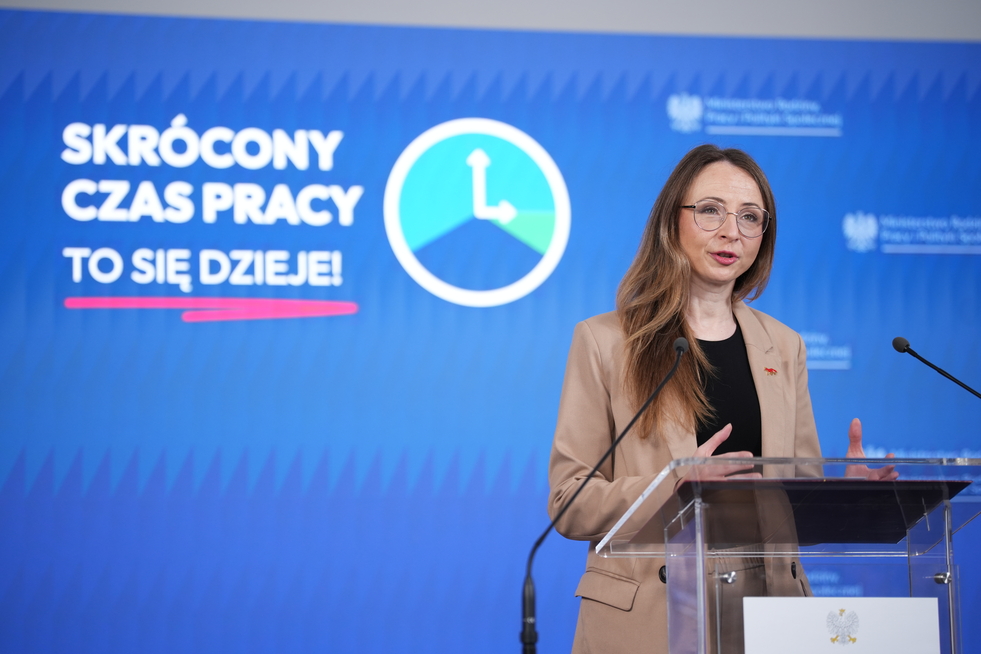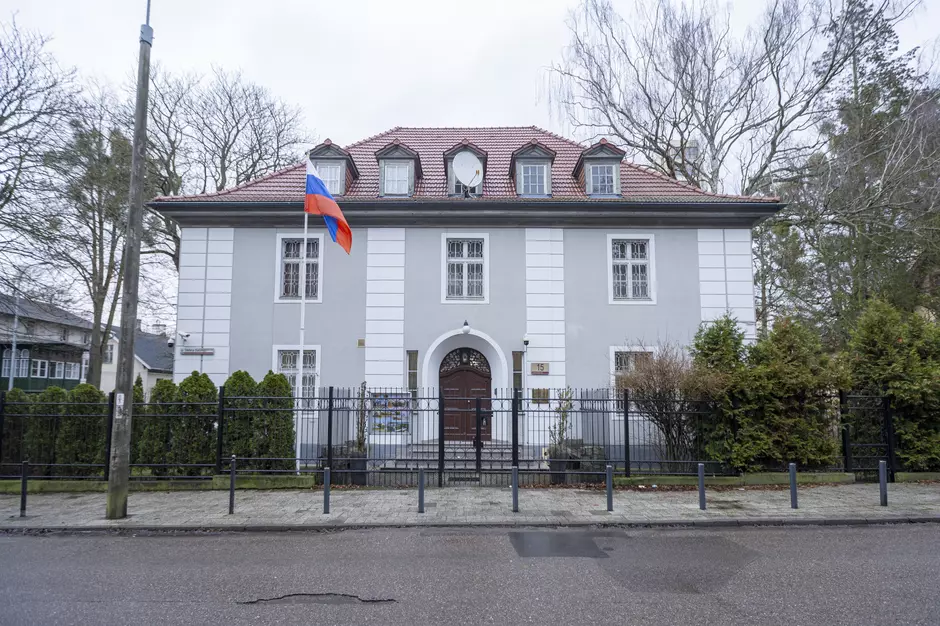Keep our news free from ads and paywalls by making a donation to support our work!

Notes from Poland is run by a small editorial team and is published by an independent, non-profit foundation that is funded through donations from our readers. We cannot do what we do without your support.
Almost 2,000 employers in Poland, including both private businesses and state institutions, have applied to take part in a government pilot programme that will test the introduction of shorter working hours for staff but with the same rate of pay.
The family, labour and social policy ministry, which will provide financial subsidies to the organisations chosen to take part, argues that cutting working hours can benefit both employers and their staff.
Pracodawcy chcą skracać czas pracy z zachowaniem wynagrodzenia ⤵️
ℹ️ Nabór do pilotażu skróconego czasu pracy @MRPiPS_GOV__PL zakończył się wielkim sukcesem 👉 Liczba wniosków złożonych przez pracodawców wyniosła aż 1994 🤝
🗓️ Teraz do 15 października opublikujemy listę… pic.twitter.com/i37gdEJOhw— Ministerstwo Rodziny, Pracy i Polityki Społecznej (@MRPiPS_GOV__PL) September 16, 2025
The pilot programming was announced in April this year by the head of the ministry, Agnieszka Dziemianowicz-Bąk. Employers interested in taking part were able to apply until 15 September.
To qualify, they needed to have been in operation for more than a year, to have at least 75% of staff on full employment contracts, and to include at least half of staff in the pilot programme.
If chosen for the scheme, the employers would have to agree not to cut the salaries of staff involved or worsen their working conditions, as well as not to reduce overall staffing by more than 10%.
On Tuesday this week, Dziemianowicz-Bąk announced that a total of 1,994 employers had applied to take part in the pilot. She said that these include “a wide range of institutions and businesses”, including both small and large firms as well as public bodies.
“This diversity will allow us to test reduced working hours while maintaining remuneration in various contexts, under different conditions, and with different work organisation models,” said the minister.
She did not reveal the names of any of the organisations who have applied or how many organisations of each type applied. Poland has a total of around 2.8 million registered businesses (though not all of those would meet the requirements of the pilot programme).
But the ministry announced that it will publish a list of the applicants chosen for the programme in mid-October. They will then launch their shorter-working-hour projects at the start of 2026.
One of Poland’s oldest firms has announced the introduction of a four-day working week for all of its 400 staff.
It hopes the change will improve employees' wellbeing and make the company more attractive as an employer
https://t.co/9QoPkAriLN— Notes from Poland 🇵🇱 (@notesfrompoland) February 5, 2024
The programme will run for one year, with employers testing different models of reduced working hours. One option is to move to a four-day working week. However, the ministry notes that other possibilities include shorter working hours each day or longer periods of paid leave.
In the first half of 2026, the employers will reduce working hours by 10%, rising to 20% from July to December. Throughout the process, participants will provide regular reports to the ministry.
It will provide up to 20,000 zloty (€4,700) per employee to cover salary costs connected with reduced working hours, with a maximum total of 1 million zloty available for each organisation taking part.
A Polish city has announced that officials will only work 35 hours a week instead of 40. Their pay will remain the same.
The Left, which holds the city's mayor's office and is also part of Poland's government, wants to introduce the same policy nationally https://t.co/71LTlhW9tE
— Notes from Poland 🇵🇱 (@notesfrompoland) August 8, 2024
According to Eurostat, people in Poland work the third-longest hours in the European Union: an average of 38.9 hours a week in 2024, behind only Greece (39.8 hours) and Bulgaria (39.0 hours). At the other end of the scale were the Netherlands (32.1 hours), Denmark, Germany and Austria (each 33.9 hours).
“New technologies have significantly increased work efficiency, and many countries, companies and institutions are already reducing working hours,” notes the Polish labour ministry.
It says that “the benefits are enormous”, including “better work-life balance, greater opportunities for self-development, longer professional careers, and a reduced risk of burnout”.
Employers themselves can also “observe increased employee efficiency and creativity, a reduction in errors and accidents, and greater competitiveness in the labour market”.
Poles work the second-longest hours in the EU, new @EU_Eurostat data show.
In 2022, they worked on average 40.4 hours a week compared to the EU-wide figure of 37.5 hours and behind only Greece (41 hours) https://t.co/dXTDGdg0O3
— Notes from Poland 🇵🇱 (@notesfrompoland) September 22, 2023
Earlier this year, a large-scale analysis of four-day working weeks involving 2,896 employees across 141 organisations in Australia, Canada, Ireland, New Zealand, the UK and the US was published.
It found that the programmes had resulted in “improvements in burnout, job satisfaction, mental health and physical health” while not reducing productivity.
Researchers at the University of Cambridge also found that four-day working weeks implemented at 61 British organisations “reduced stress and illness in the workforce, and helped with worker retention” while also seeing “an increase in productivity to offset the reduction in working time”.
A 4 day work week with same pay leaves employees happier, healthier and higher-performing in largest study so far in 6 countries.
In a 6-month trial it educed burnout, increased job satisfaction & improved mental & physical health. https://t.co/3APOrExJKh— C. Michael Gibson MD (@CMichaelGibson) July 25, 2025

Notes from Poland is run by a small editorial team and published by an independent, non-profit foundation that is funded through donations from our readers. We cannot do what we do without your support.
Main image credit: MRPiPS (under CC BY-NC-ND 3.0 PL)

Daniel Tilles is editor-in-chief of Notes from Poland. He has written on Polish affairs for a wide range of publications, including Foreign Policy, POLITICO Europe, EUobserver and Dziennik Gazeta Prawna.



















